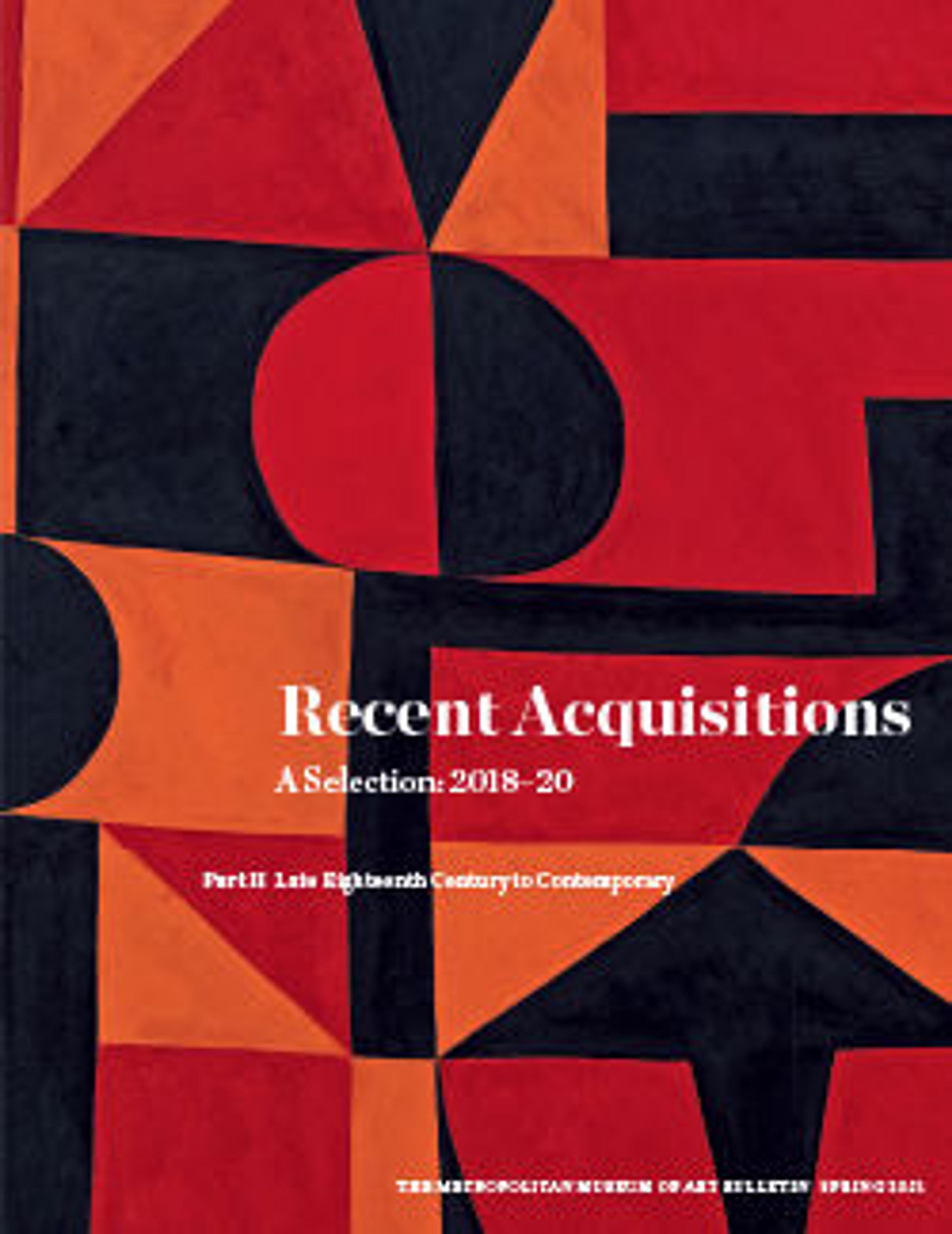Homage To Malcolm
Until shortly before his death in 2018, Whitten was known primarily as an abstract painter. Beginning in 1963, however, he began to experiment with the medium of sculpture. Homage to Malcolm is one of only forty sculptures that Whitten created during his lifetime and the first to make use of found materials, an approach inspired by a wide range of cross-cultural, trans-historical sources, including European and American assemblage; the vernacular tradition of recycling or "making do" in Black communities in the Southern United States; and Kongo power figures (nkisi n’kondi), which the artist saw for the first time at Nelson Rockefeller’s Museum of Primitive Art in New York in 1958–59. Homage to Malcolm was created the same year its honorary subject, Malcolm X, was assassinated. (A painting devoted to Malcolm X would follow in 1970 [Homage to Malcolm, Estate of the Artist)]. Whitten often dedicated both his sculptures and his paintings to symbols of Black excellence and authority, assigning them a politically-charged commemorative function. The sculptural version of Homage to Malcolm consists of five pieces of American elm that Whitten carved, stained, and embellished with pieces of metal and other materials, including coils of metal wire, which might reference either the tradition of African metalwork (see, for instance, the filaments in The Met’s own Kota reliquary, donated by Nelson Rockefeller or the elaborate coils of beadwork worn by the women of certain African tribes. Read as a whole, the work evokes a muscular, outstretched arm. The wood of the "hand" bears deep gouge marks, suggesting skin hardened through manual labor or, alternately, the effort of tendons under great strain. The round, upturned shape at the base of the "hand" evokes an open palm, while the smooth, highly polished piece of wood that curves outward and ends at a point calls to mind a weapon. In the end, however, Homage remains an abstract sculpture whose composition communicates its meaning obliquely. If it appears coiled with potential energy and tensed with anticipation, if it seems to strike a defensive posture and sound a note of political righteousness, it is all thanks to Whitten’s expert use of material and his skills as a woodcarver.
Artwork Details
- Title: Homage To Malcolm
- Artist: Jack Whitten (American, Bessemer, Alabama 1939–2018 New York)
- Date: 1965
- Medium: Wood, metal and paint
- Dimensions: 75 × 17 × 13 in. (190.5 × 43.2 × 33 cm)
42 lb. (19.1 kg) - Classification: Sculpture
- Credit Line: Purchase, Lila Acheson Wallace Gift, 2019
- Object Number: 2019.427
- Rights and Reproduction: © Estate of Jack Whitten. Courtesy The Estate of Jack Whitten and Hauser & Wirth
- Curatorial Department: Modern and Contemporary Art
More Artwork
Research Resources
The Met provides unparalleled resources for research and welcomes an international community of students and scholars. The Met's Open Access API is where creators and researchers can connect to the The Met collection. Open Access data and public domain images are available for unrestricted commercial and noncommercial use without permission or fee.
To request images under copyright and other restrictions, please use this Image Request form.
Feedback
We continue to research and examine historical and cultural context for objects in The Met collection. If you have comments or questions about this object record, please contact us using the form below. The Museum looks forward to receiving your comments.
